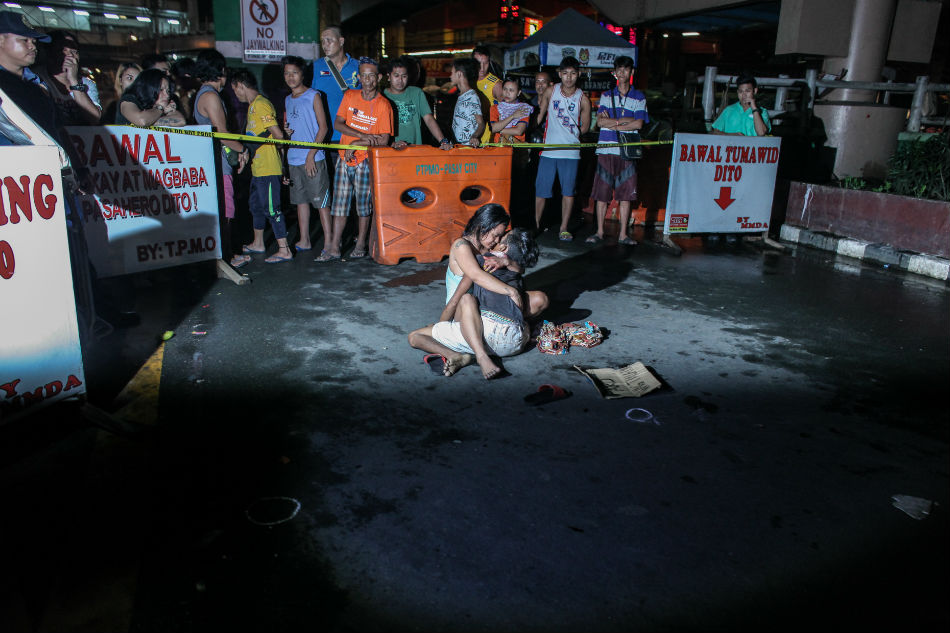ICC has no jurisdiction over PH drug war, says OSG | ABS-CBN
ADVERTISEMENT

Welcome, Kapamilya! We use cookies to improve your browsing experience. Continuing to use this site means you agree to our use of cookies. Tell me more!
ICC has no jurisdiction over PH drug war, says OSG
ICC has no jurisdiction over PH drug war, says OSG
ABS-CBN News
Published Feb 09, 2018 07:00 PM PHT
MANILA - The International Criminal Court (ICC) has no jurisdiction over the government's anti-drug campaign, the Office of the Solicitor General (OSG) said Friday.
MANILA - The International Criminal Court (ICC) has no jurisdiction over the government's anti-drug campaign, the Office of the Solicitor General (OSG) said Friday.
In a statement, OSG spokesperson Erik Dy said the ICC "may only exercise jurisdiction where domestic courts are incapable of carrying out the proper proceedings."
In a statement, OSG spokesperson Erik Dy said the ICC "may only exercise jurisdiction where domestic courts are incapable of carrying out the proper proceedings."
"There are adequate laws and remedies in our country to address the issue of alleged extrajudicial killings. In fact, petitions against the administration’s War on Drugs are now pending for resolution before the Supreme Court," the statement read.
"There are adequate laws and remedies in our country to address the issue of alleged extrajudicial killings. In fact, petitions against the administration’s War on Drugs are now pending for resolution before the Supreme Court," the statement read.
"This negates the need for the ICC to take cognizance of the matter."
"This negates the need for the ICC to take cognizance of the matter."
ADVERTISEMENT
The OSG made the statement in light of the ICC's announcement Thursday that it would start preliminary examination into crimes allegedly committed by President Rodrigo Duterte and other top officials in the administration's war on drugs.
The OSG made the statement in light of the ICC's announcement Thursday that it would start preliminary examination into crimes allegedly committed by President Rodrigo Duterte and other top officials in the administration's war on drugs.
"Specifically, it has been alleged that since July 2016, thousands of persons have been killed for reasons related to their alleged involvement in illegal drug use or dealing," ICC Prosecutor Fatou Bensouda said in a statement.
"Specifically, it has been alleged that since July 2016, thousands of persons have been killed for reasons related to their alleged involvement in illegal drug use or dealing," ICC Prosecutor Fatou Bensouda said in a statement.
"While some of such killings have reportedly occurred in the context of clashes between or within gangs, it is alleged that many of the reported incidents involved extrajudicial killings in the course of police anti-drug operations," she said.
"While some of such killings have reportedly occurred in the context of clashes between or within gangs, it is alleged that many of the reported incidents involved extrajudicial killings in the course of police anti-drug operations," she said.
Government has many times denied involvement in summary killings, saying the nearly 4,000 drug suspects killed in police operations had put up violent resistance, prompting officers to defend themselves.
Government has many times denied involvement in summary killings, saying the nearly 4,000 drug suspects killed in police operations had put up violent resistance, prompting officers to defend themselves.
Created in 1998 through the United Nations treaty called the Rome Statute, the ICC has jurisdiction over 124 of its members, including the Philippines.
Created in 1998 through the United Nations treaty called the Rome Statute, the ICC has jurisdiction over 124 of its members, including the Philippines.
It is the first permanent institution having power to exercise jurisdiction over persons for the most serious crimes of international concern such as the crime of genocide, crimes against humanity, war crimes and crimes of aggression, and is seen to help end impunity for the perpetrators of these crimes.
It is the first permanent institution having power to exercise jurisdiction over persons for the most serious crimes of international concern such as the crime of genocide, crimes against humanity, war crimes and crimes of aggression, and is seen to help end impunity for the perpetrators of these crimes.
The Philippines signed the Rome Statute on December 28, 2000 and ratified and endorsed it on August 30, 2011, during the time of Duterte’s predecessor, then President Benigno Aquino III.
The Philippines signed the Rome Statute on December 28, 2000 and ratified and endorsed it on August 30, 2011, during the time of Duterte’s predecessor, then President Benigno Aquino III.
ADVERTISEMENT
ADVERTISEMENT


